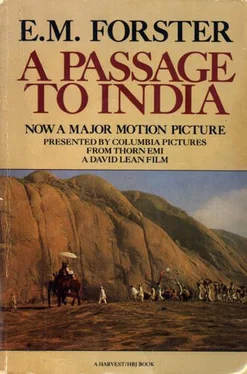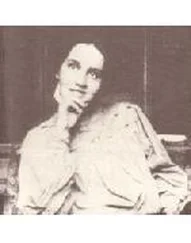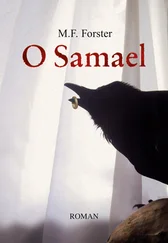"The guide."
"Exactly, the guide. I often think so. Unluckily Aziz hit him on the face, and he got a fright and disappeared. It is most unsatisfactory, and we hadn't the police to help us, the guide was of no interest to them."
"Perhaps it was the guide," she said quietly; the question had lost interest for her suddenly.
"Or could it have been one of that gang of Pathans who have been drifting through the district?"
"Someone who was in another cave, and followed me when the guide was looking away? Possibly."
At that moment Hamidullah joined them, and seemed not too pleased to find them closeted together. Like everyone else in Chandrapore, he could make nothing of Miss Quested's conduct. He had overheard their last remark. "Hullo, my dear Fielding," he said. "So I run you down at last. Can you come out at once to Dilkusha?"
"At once?"
"I hope to leave in a moment, don't let me interrupt," said Adela.
"The telephone has been broken; Miss Quested can't ring up her friends," he explained.
"A great deal has been broken, more than will ever be mended," said the other. "Still, there should be some way of transporting this lady back to the civil lines. The resources of civilization are numerous." He spoke without looking at Miss Quested, and he ignored the slight movement she made towards him with her hand.
Fielding, who thought the meeting might as well be friendly, said, "Miss Quested has been explaining a little about her conduct of this morning."
"Perhaps the age of miracles has returned. One must be prepared for everything, our philosophers say."
"It must have seemed a miracle to the onlookers," said Adela, addressing him nervously. "The fact is that I realized before it was too late that I had made a mistake, and had just enough presence of mind to say so. That is all my extraordinary conduct amounts to."
"All it amounts to, indeed," he retorted, quivering with rage but keeping himself in hand, for he felt she might be setting another trap. "Speaking as a private individual, in a purely informal conversation, I admired your conduct, and I was delighted when our warmhearted students garlanded you. But, like Mr. Fielding, I am surprised; indeed, surprise is too weak a word. I see you drag my best friend into the dirt, damage his health and ruin his prospects in a way you cannot conceive owing to your ignorance of our society and religion, and then suddenly you get up in the witness-box: 'Oh no, Mr. McBryde, after all I am not quite sure, you may as well let him go.' Am I mad? I keep asking myself. Is it a dream, and if so, when did it start? And without doubt it is a dream that has not yet finished. For I gather you have not done with us yet, and it is now the turn of the poor old guide who conducted you round the caves."
"Not at all, we were only discussing possibilities," interposed Fielding.
"An interesting pastime, but a lengthy one. There are one hundred and seventy million Indians in this notable peninsula, and of course one or other of them entered the cave. Of course some Indian is the culprit, we must never doubt that. And since, my dear Fielding, these possibilities will take you some time "—here he put his arm over the Englishman's shoulder and swayed him to and fro gently—" don't you think you had better come out to the Nawab Bahadur's—or I should say to Mr. Zulfiqar's, for that is the name he now requires us to call him by."
"Gladly, in a minute…"
"I have just settled my movements," said Miss Quested. "I shall go to the Dak Bungalow."
"Not the Turtons'? " said Hamidullah, goggle-eyed. "I thought you were their guest."
The Dak Bungalow of Chandrapore was below the average, and certainly servantless. Fielding, though he continued to sway with Hamidullah, was thinking on independent lines, and said in a moment: "I have a better idea than that, Miss Quested. You must stop here at the College. I shall be away at least two days, and you can have the place entirely to yourself, and make your plans at your convenience."
"I don't agree at all," said Hamidullah, with every symptom of dismay. "The idea is a thoroughly bad one. There may quite well be another demonstration to-night, and suppose an attack is made on the College. You would be held responsible for this lady's safety, my dear fellow."
"They might equally attack the Dak Bungalow."
"Exactly, but the responsibility there ceases to be yours."
"Quite so. I have given trouble enough."
"Do you hear? The lady admits it herself. It's not an attack from our people I fear—you should see their orderly conduct at the hospital; what we must guard against is an attack secretly arranged by the police for the purpose of discrediting you. McBryde keeps plenty of roughs for this purpose, and this would be the very opportunity for him."
"Never mind. She is not going to the Dak Bungalow," said Fielding. He had a natural sympathy for the down-trodden—that was partly why he rallied from Aziz—and had become determined not to leave the poor girl in the lurch. Also, he had a new-born respect for her, consequent on their talk. Although her hard schoolmistressy manner remained, she was no longer examining life, but being examined by it; she had become a real person.
"Then where is she to go? We shall never have done with her!" For Miss Quested had not appealed to Hamidullah. If she had shown emotion in court, broke down, beat her breast, and invoked the name of God, she would have summoned forth his imagination and generosity—he had plenty of both. But while relieving the Oriental mind, she had chilled it, with the result that lie could scarcely believe she was sincere, and indeed from his standpoint she was not. For her behaviour rested on cold justice and honesty; she had felt, while she recanted, no passion of love for those whom she had wronged. Truth is not truth in that exacting land unless there go with it kindness and more kindness and kindness again, unless the Word that was with God also is God. And the girl's sacrifice—so creditable according to Western notions—was rightly rejected, because, though it came from her heart, it did not include her heart. A few garlands from students was all that India ever gave her in return.
"But where is she to have her dinner, where is she to sleep? I say here, here, and if she is hit on the head by roughs, she is hit on the head. That is my contribution. Well, Miss Quested?"
"You are very kind. I should have said yes, I think, but I agree with Mr. Hamidullah. I must give no more trouble to you. I believe my best plan is to return to the Turtons, and see if they will allow me to sleep, and if they turn me away I must go to the Dak. The Collector would take me in, I know, but Mrs. Turton said this morning that she would never see me again." She spoke without bitterness, or, as Hamidullah thought, without proper pride. Her aim was to cause the minimum of annoyance.
"Far better stop here than expose yourself to insults from that preposterous woman."
"Do you find her preposterous? I used to. I don't now."
"Well, here's our solution," said the barrister, who had terminated his slightly minatory caress and strolled to the window. "Here comes the City Magistrate. He comes in a third-class band-ghari for purposes of disguise, he comes unattended, but here comes the City Magistrate."
"At last," said Adela sharply, which caused Fielding to glance at her.
"He comes, he comes, he comes. I cringe. I tremble."
"Will you ask him what he wants, Mr. Fielding?"
"He wants you, of course."
"He may not even know I'm here."
"I'll see him first, if you prefer."
When he had gone, Hamidullah said to her bitingly: "Really, really. Need you have exposed Mr. Fielding to this further discomfort? He is far too considerate." She made no reply, and there was complete silence between them until their host returned.
Читать дальше












